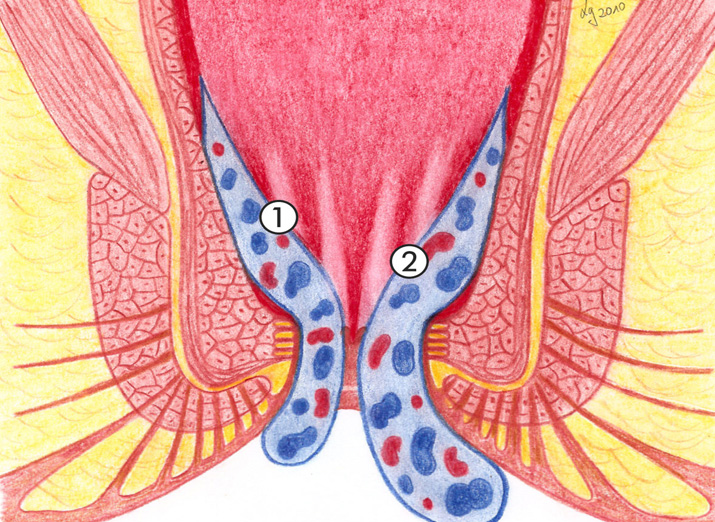Piles (also called haemorrhoids) are nothing to be embarrassed about. Learn about the risk factors and get prevention tips.
What can cause piles?
“If you pass a large, hard stool, it increases the pressure on blood vessels, and they may bleed,” says Dr John Bennett, president of Core, the gut and liver disease charity.
“Over time, lumps become visible and appear out of the anus. Then they can cause some discomfort because of their presence.”
Any blood from haemorrhoids is always bright red because it comes from the rectum. Darker blood could signal a serious problem further up your bowels, and should be reported to a doctor as soon as possible.
Other factors that can increase your chances of having haemorrhoids include:
- being overweight
- constipation
- regular diarrhoea
- regularly lifting heavy objects
- pregnancy
- being over the age of 50
A high-fibre diet will help keep your stools soft, reducing your risk of having to strain to pass a stool, which is the primary cause of haemorrhoids.
Try emptying your bowels as and when you need to. By delaying going to the toilet, your stool becomes harder and drier, which will cause straining.
Pregnant women and new mothers often get piles, but should seek specific medical advice from their doctor or midwife.
Prevention tips
- Eat plenty of fresh fruit and vegetables.
- Cut down on fat (particularly animal fat), sugary food, and refined and processed food.
- Eat plenty of pulses, such as peas, beans and lentils.
- Eat plenty of wholegrain foods, such as wholemeal bread, pasta and breakfast cereals.
- Drink water regularly throughout the day.
- Exercise regularly. This can prevent constipation, reduce the pressure in your blood vessels and help you to lose weight.
- Avoid medication that causes constipation, such as painkillers containing codeine.
- Drink alcohol in moderation. Too much alcohol will dehydrate you and make your stools hard.
High-fibre foods
- Ditch your white loaf for wholemeal or multigrain bread.
- Try brown rice and wholemeal pasta for a change.
- Eat more nuts and seeds. You could add them to breakfast cereals and sprinkle them onto salads.
- Eat five portions of fresh fruit and vegetables a day.
- Add pulses (including baked beans, kidney beans, lentils and chickpeas) to soups, casseroles and salads.
For immediate relief, over-the-counter creams and medicines can be used to soothe any inflammation around the anus.



